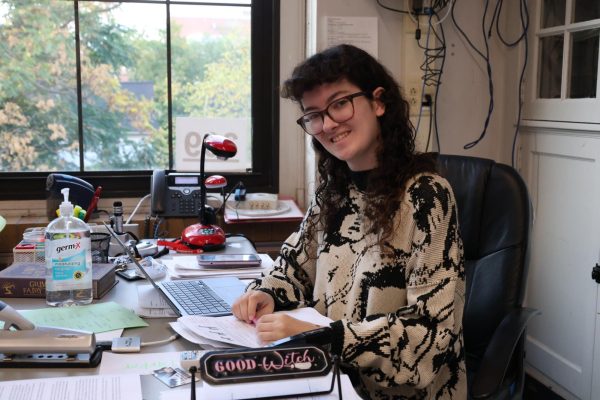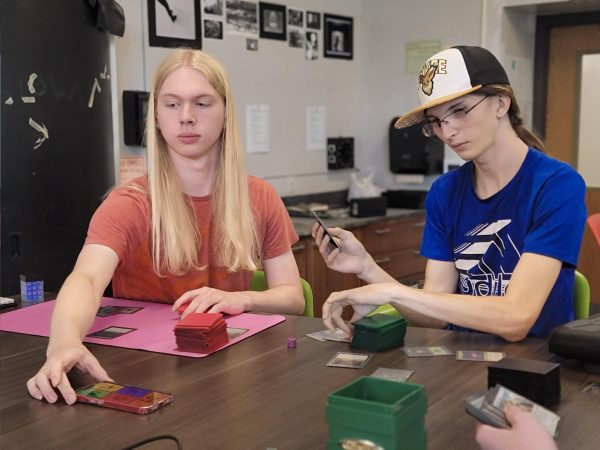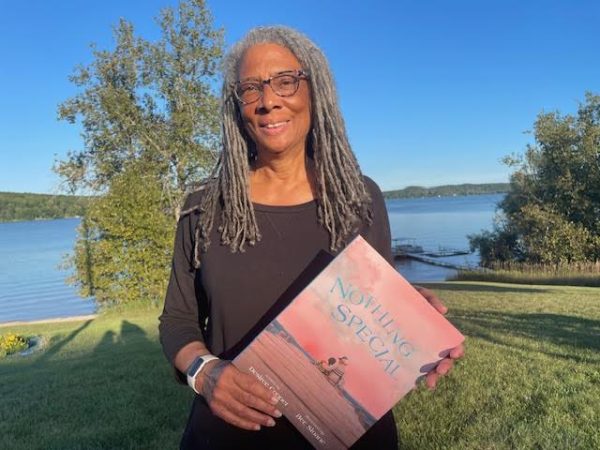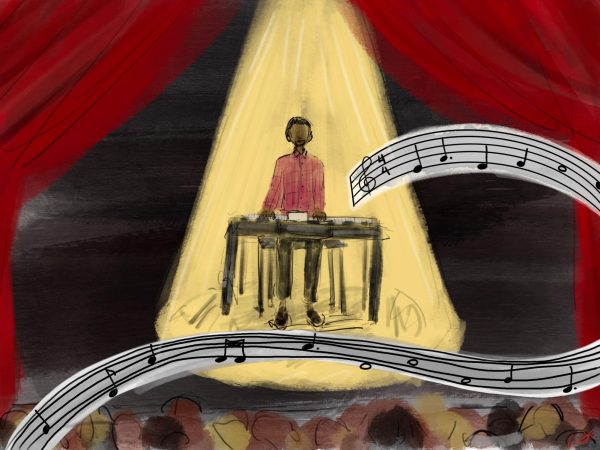College applications: the story of you

When Quincy Jenkins sat down to write his common application — knowing his next 500 words would dictate his future — he decided the subject of this essay would need to be something different. It would have to be something that would stand out: something like Quincy. After careful consideration, Jenkins decided to write about superheroes.
This year, about 19.9 million students are expected to attend colleges and universities. This means that a vast amount of applications will be filled out and submitted across the country. Millions of college students will find themselves struggling to stand out against many other hopeful, often equally qualified applicants. College applications have become a common task among high school seniors, and the stress created by them is undeniably real. For many, college has been marketed since middle or even elementary school as the end goal: the fruition of our hours spent slaving over homework and studying for tests.
With each of these students attempting to define themselves for the benefit of their admissions officer in 1,000 characters or less, the true essence of a student can often go overlooked. For Jenkins, the use of a non-conventional topic in his essay may help to set him apart from the crowd.
“I said I was like Tony Stark and Iron Man because they’re responsible,” Jenkins said. He remarked that one of the most difficult parts of writing the essay was the fact that the prompt was very broad and provided little guidance, leaving a great deal of liberty to the writer. Jenkins used this freedom to write about a topic that he loved and that interested him and led him towards what he believed to be a deeply personal end product.
“You’re giving them a piece of you, right?” Brian Williams, a counselor at Community High School (CHS), said. “And maybe it’s a meaningful thing or a challenging time… If there are some significant obstacles or barriers that get in your way, you can reflect on that and show them that’s an opportunity for you to stand out.”
He emphasized that, in the common application, a student’s best chance at showing their college of choice who they are lies in their essays. By requiring an essay, applications give students a chance to tell their true stories. Amid the large amounts of time and painstaking efforts that go into such an essay, this can sometimes feel like a curse. However, Williams challenged that the essay portion of the application truly is a blessing.
“When I’m working with kids, I always remind them that this is your opportunity to show them who you are, this is a little bit of your voice,” Williams said.
Amy McLoughlin, also a counselor at CHS, mentioned that some colleges offer a unique solution to the impersonal nature of the common application: interviews.
“[75,000] applications, and even if you’re a reader and you’re only reading 100, it’s still a piece of paper,” McLoughlin said. “And so you’re judging people based on how well they can ‘do school’ rather than who they are. I think the small schools probably do a better job of interviewing.”
She explained that while she was applying for college, an interview could have completely changed her experience. McLoughlin believes that having an interview, instead of, or in addition to an essay, would have allowed her to present herself more truthfully to her choice schools. Today, she sees students meeting college admission officers over coffee.
“I think that’s beautiful,” McLoughlin said. “I didn’t have a good GPA coming out of high school. But if you would have met me, you would see that’s not necessarily a reflection [of me.] I just didn’t ‘play school’ well.”
Julia Babaev, a senior at CHS, writes her college applications from a different place, applying to Wayne State, Ohio State and Depaul.
“My [application] is really me,” Babaev said.“I had this surgery… it really defined me. It was a time of a lot of personal growth.”
In addition to her surgery, Babaev wrote about another character building element to her life: race. On the Common Application, it asks an applicant to label their race. With her heritage in the former Soviet Republic of Azerbaijan, Babaev doesn’t have a bubble that fits her perfectly.
“It asked [if I am] white or Asian,” Babaev said. “I had to say both. That was really me.”
“A student’s college essay is their opportunity to reveal their best qualities and to show an admission committee what makes them stand out from other applicants,” according to College Board.
It takes reading a story, in an applicant’s own words, to even begin understanding the potential of a candidate.
“When these colleges read it,” Babaev said, “it will be honest and real.”







